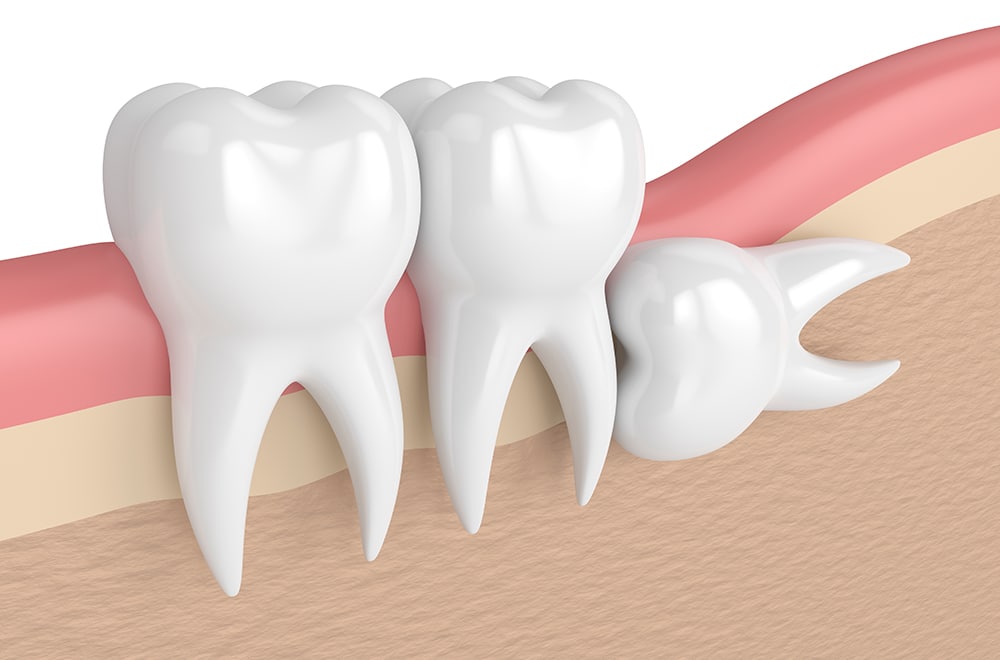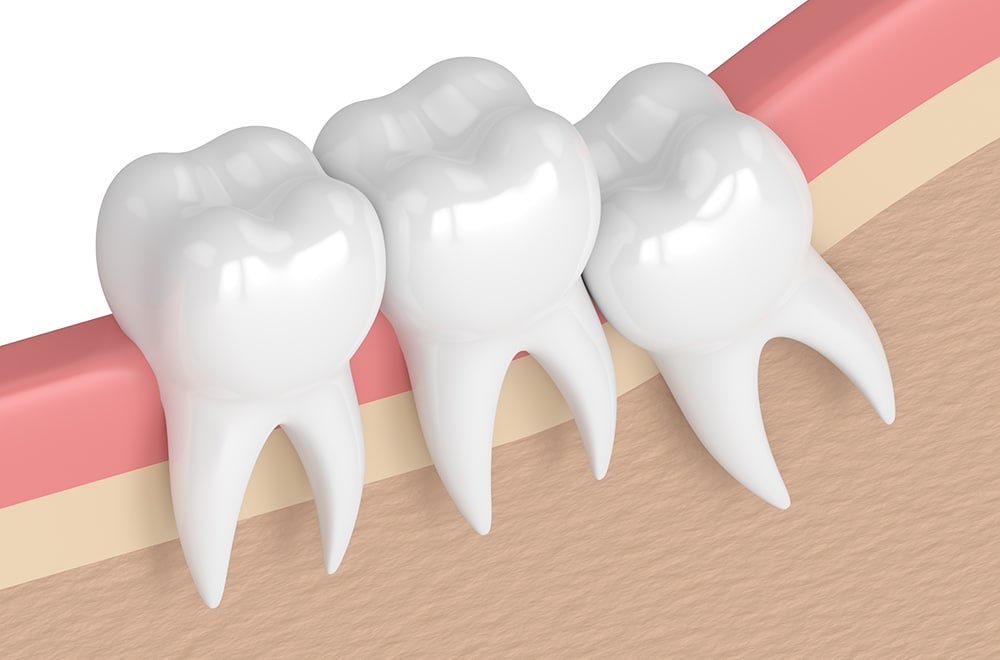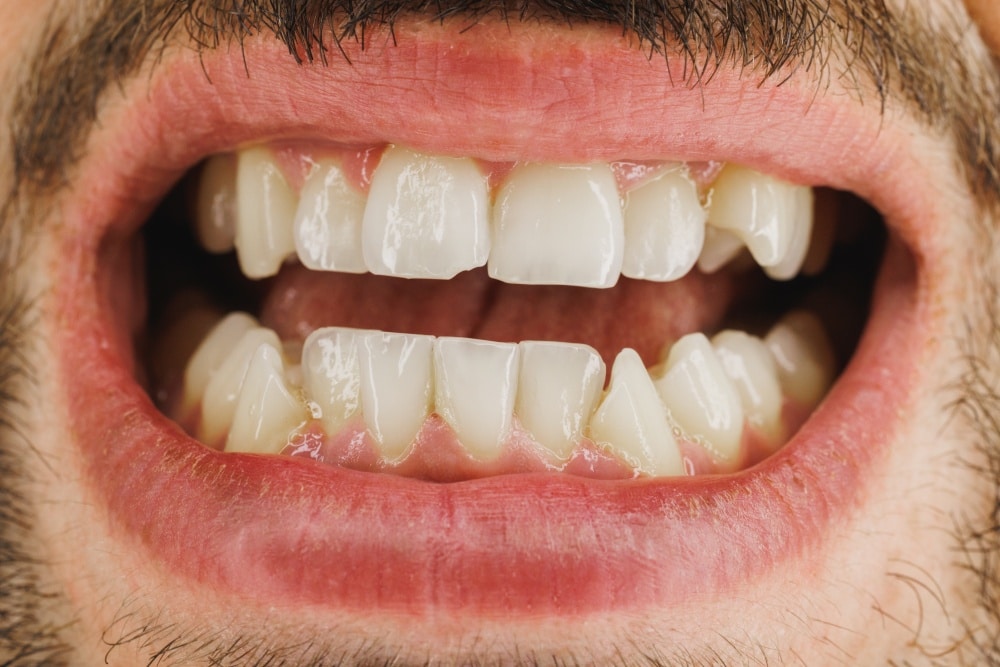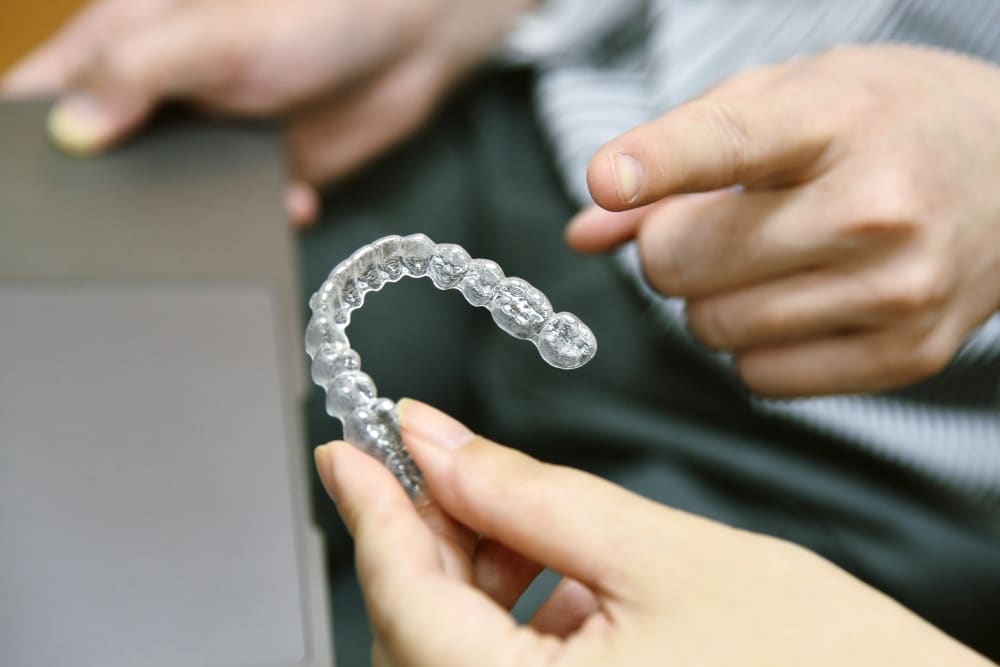
THINGS YOU NEED TO KNOW ABOUT YOUR WISDOM TEETH
What are wisdom teeth?
A human mouth consists of 32 teeth mostly. 8 of these are incisors, 4 are canines, 8 are premolars and there are 12 molars (that consist of 4 wisdom teeth – which are the third set of molars and the last teeth in the mouth). They are known as wisdom teeth because they emerge late in life when a person is presumably wiser. For most of the people, wisdom teeth start erupting anywhere between the ages of 17 to 21 but for some people they start erupting as early as 13 years of age. Normally they emerge before the age of 25 and if that doesn’t happen for a certain group of people, then the eruption does not take place spontaneously. For different races and populations, the age of wisdom teeth eruption varies. According to anthropologists, these teeth have outlived their purpose as it is believed that wisdom teeth helped our ancestors to chew hard and rough foods such as raw meat, nuts, roots, leaves etc.
How do you know when the Wisdom teeth are about to erupt?
The symptoms of an incoming wisdom tooth can start suddenly or slowly. For some people these symptoms are more apparent than the other. They include tender gums with or without bleeding, swelling of jaws or gums (specially around the gum of the tooth that is emerging) and a constant pain on the effected side of the jaw that can be felt from the side of the neck till the ears or till the temples of the head. The pain can resemble that of migraine and some people think they are having a migraine only to find out on an X-Ray later that their wisdom tooth is ready to emerge. A non-erupted wisdom tooth can also cause triggered headaches due to the pressure. In some of the cases, the tip of the tooth grows out which leads to an infection of the gums which can also turn into a serious complication. A change in taste of the mouth or bad breath can also be a sign of an emerging wisdom tooth. Wisdom teeth can erupt one by one or all four of them can erupt after one another in a short time span.
What are the reasons for painful eruption of Wisdom teeth?
Impacted wisdom tooth: In some of the cases the jaw of a person does not have enough space to grow out so the teeth erupts at an awkward or odd angle which puts a pressure on the rest of the teeth and causes pain. They can also lead to tumor and cysts of the gums.
Infection: An infection in the gums can result in bleeding, swelling and pain. It is mostly caused by partial eruption.


How to treat Wisdom teeth pain?
Wisdom teeth pain can be relieved by the following remedies and treatments for most of the cases:
- Applying cold or hot compress
- Salt water gargles
- Using a medicated/anti-inflammatory mouthwash
- Taking anti-inflammatory medication






